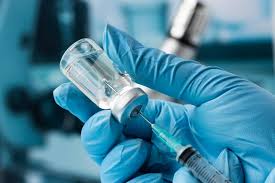After encouraging outcomes from the Phase-I studies, the expert committee under the Central Drug Regulatory Authority approved the continuation of Phase-II clinical trials for the tetravalent live attenuated dengue vaccine developed by the Serum Institute of India (SII). With strains from the National Institute of Allergy and Infectious Diseases (NIAID) and the National Institutes of Health (NIH) in the USA, this vaccine was created in India with the goal of providing protection against all four serotypes of the dengue virus.
Sixty healthy adults between the ages of 18 and 45 participated in the double-blind, randomized, placebo-controlled Phase I clinical trial, which was carried out in Australia. The purpose of this first stage was to assess the vaccine’s immunogenicity and safety. As per the results that were released in August of the previous year in the journal Vaccine, the vaccine exhibited a robust safety profile and was well-tolerated by the subjects. The majority of people showed seroconversion, which is a sign that the vaccine was well-received by their immune systems and is essential for developing dengue virus immunity. The trial demonstrated that the vaccine produced encouraging outcomes for all four serotypes (tetravalent), in addition to eliciting a robust immune response against one or more serotypes.
The subject expert committee examined these Phase-I results on July 18, 2023, and after careful consideration suggested moving forward with Phase-II trials. Based on the vaccine’s proven safety and Phase-I trial-based capacity to elicit a strong immunological response, this recommendation was made. Extending the testing to a larger cohort of participants, the Phase-II studies aim to evaluate the vaccine’s safety and efficacy over an extended duration and population.
Following an approved procedure, the vaccine will be evaluated in a bigger and more diverse group throughout the Phase-II studies to confirm its safety and efficacy. This phase is crucial for determining whether the vaccination will offer protection for an extended period of time and whether there are any uncommon or long-term side effects that weren’t seen in Phase-I.
All things considered, the committee’s proposal represents a major advancement in the dengue vaccine’s development, demonstrating their trust in the vaccine’s early outcomes and ability to fight dengue fever, which is common in many tropical places. The move to Phase-II trials will open the door for future extensive research and offer more information on how effective the vaccine is.
SOURCE :
THE ECONOMIC TIMES








